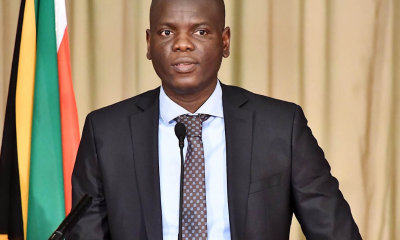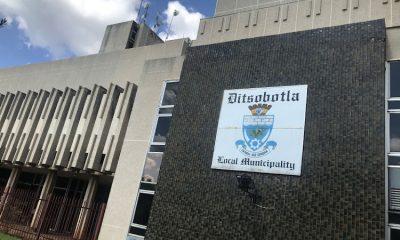411
Tshwane Eyes Derelict Buildings for Expropriation Without Compensation Under New Law

The City of Tshwane has announced bold new plans to tackle the growing crisis of hijacked and derelict buildings in Pretoria’s central business district (CBD)—and it may do so without paying a cent in compensation.
During her recent State of the Capital Address, Mayor Nasiphi Moya revealed that 32 buildings in the city have been earmarked for urgent intervention. These include hijacked, abandoned, and city-owned properties that pose risks to public safety and economic stability.
To fast-track the process, the city intends to rely on the Expropriation Act, a law signed into effect earlier this year, which allows government to seize property “in the public interest”—even without compensating the owner.
“The current state of our CBD is not befitting of a national capital,” said Moya. “We are taking active steps to reverse years of decay and neglect.”
A City in Crisis
Once-vibrant commercial and residential buildings have become havens for crime, drug use, and illegal occupation. Some structures, like the Schubart Park Precinct and Kruger Park Building, are already undergoing planning for redevelopment.
According to Kholofelo Morodi, Tshwane’s MMC for Corporate and Shared Services, the newly formed Bad Buildings subcommittee will lead the charge. The goal: to repurpose these buildings for affordable rentals and student accommodation—potentially unlocking 15,000 to 22,000 new housing units.
“Derelict buildings are not just an eyesore,” Morodi said. “They are a threat to public health and safety. The Expropriation Act gives us the legal pathway to act when owners neglect their responsibilities.”
Legal Route Being Prepared
Tshwane is also drafting a new Problem Buildings By-law to strengthen the city’s legal muscle. The updated regulations aim to replace the outdated 2012 Derelict Buildings By-law and will apply to both public and private properties.
If property owners fail to fix the issues, the city will invoke the Expropriation Act to seize the buildings.
While the law permits expropriation without compensation in the public interest, city officials say they will still try to engage with owners—particularly in the case of privately owned buildings—before proceeding.
National Backing from Ramaphosa
President Cyril Ramaphosa has publicly endorsed the use of the Expropriation Act to tackle urban decay. During a visit to Johannesburg in March, he said abandoned buildings should be taken and converted into housing—even if that means doing so without compensation.
“These abandoned buildings, where the owners have run away, should be subjected to the law we have just passed,” said Ramaphosa. “This aligns with the Constitution and addresses our housing crisis.”
Concerns Over Property Rights
Not everyone is on board. Critics warn that the move could undermine property rights and scare off investors.
Political analyst Dr Frans Cronje argues that expropriating fixed or movable property without market-value compensation introduces dangerous uncertainty into South Africa’s economic climate.
“Without strong property rights, fixed investment will remain stagnant,” Cronje cautioned. “This Act goes far beyond land reform—it strikes at the heart of investor confidence.”
South Africa’s fixed investment-to-GDP ratio currently stands at just 15%, far below the 25–30% needed for sustainable growth.
Despite the controversy, Tshwane’s administration is moving full steam ahead. With town planning already underway and site preparations beginning, the city hopes to attract significant private-sector investment once the buildings are rehabilitated.
The success or failure of this initiative could set a precedent for cities across South Africa facing similar challenges. For now, Tshwane is betting that the bold use of the Expropriation Act can help transform a city in decline into a more liveable and economically active capital.
{Source: BusinessTech}
Follow Joburg ETC on Facebook, Twitter , TikTok and Instagram
For more News in Johannesburg, visit joburgetc.com


























